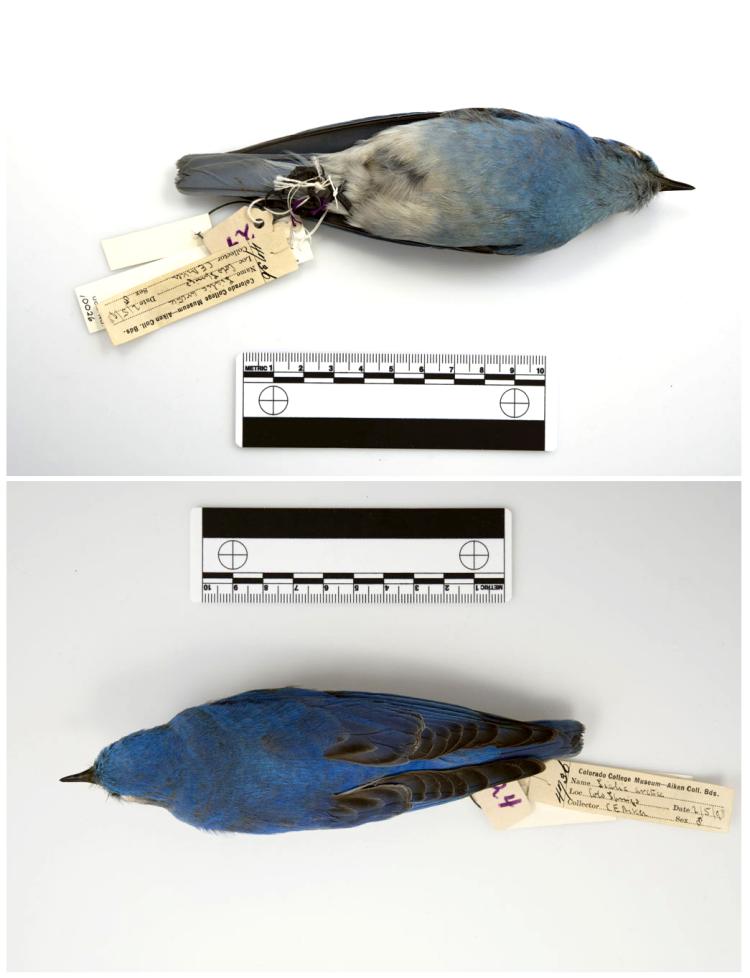The CU Museum is closed. We will be reopening soon.
During this time, collection visits will be available by appointment and other special access requests will be considered on a case-by-case basis.
Please email cumuseum@colorado.edu for more information.
Mountain Bluebird

Male mountain bluebirds are cloaked in a striking cerulean plumage, while females are colored an ashy grey with only a hint of blue tinting their wings. Many species of birds exhibit sexual dimorphism (Greek for “two forms”), where males and females appear different in regards to plumage or size – a common example being mallard ducks. Plumage often plays a large role in sexual selection: the more flamboyantly colored or decorated male’s feathers can communicate his relative fitness to potential mates, while cryptic browns and greys camouflage nesting females (and their broods) from predators. Interestingly, research indicates that female mountain bluebirds are not swayed by bold hues as much as by real estate, favoring a mate based on his ability to scout out quality nesting sites, usually inside a cozy tree cavity.
The brilliant blue plumage exhibited by this specimen is not determined by pigments at all, but rather from the play of light on the microanatomy of feathers, to produce what is known as structural color. Iridescence* is a result of structural color, scattering light like a prism and absorbing all wavelengths other than the color perceived (blue in this case). Blue pigmentation is incredibly rare in nature, and therefore the blues witnessed in bluebirds, blue jays, indigo buntings, peacocks, and even blue morpho butterflies are all an effect of this optical illusion. Unlike pigments, structural colors do not fade over time or with exposure to light, and as a result, our 122-year-old mountain bluebird doesn’t look a day older than he did at the turn of the 20th century.
*If you’d like to learn more about iridescence in a family-friendly way, please check out our iridescence video and activity here.
Sialia currucoides
Collect Date: May 2, 1898
Locality: Colorado, El Paso County, Colorado Springs
Collector: Charles E. Aiken
https://arctos.database.museum/guid/UCM:Bird:10026

